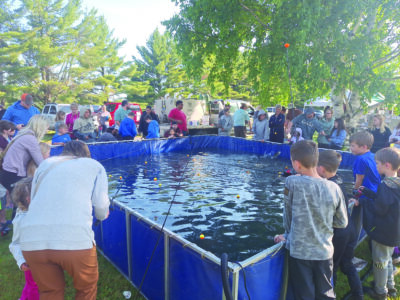Governor signs marijuana legislation aimed at health and safety
LANSING, Mich. — Gov. Gretchen Whitmer signed legislation Tuesday that she says protects the public health and safety of Michigan residents by regulating the intoxicating substance delta-8 THC derivative that is currently being sold – untested and unregulated – in convenience stores, gas stores, and tobacco/smoke shops throughout the state, according to a release from the governor’s office.
This package of bills also updates definitions regarding products derived from the cannabis plant, so that all intoxicating substances will be safety-tested through the Marijuana Regulatory Agency (MRA). MRA’s statewide monitoring system and will be tracked through the state’s seed-to-sale tracking system.
Starting on Oct. 11, 2021, these products, which were available for sale to individuals of all ages by businesses that currently cannot sell licensed adult-use or medical marijuana products, will be covered by state law and regulated by the MRA.
In the release, Whitmer said that the package of bills shows Michigan is the nation’s model for protecting its residents and ensuring that those consume marijuana do so in a safe manner.
“I am glad to see Michigan continuing to lead on the implementation and regulation of a safe, secure marijuana industry,” she stated in the release, “which has already brought tens of millions of dollars in new tax revenue to the state, as well as thousands of well-paying jobs.”
Delta-8 THC is the cannabinoid that naturally occurs in small amounts in hemp, and can be synthesized from cannabidiol (CBD) or delta-9 THC, the primary psychoactive constituent of cannabis, states nutrionaloutlook.com in a July 12 article. Unlike CBD, delta-8 THC does produce psychoactive effects in users, though reportedly not the same level of intoxication associated with delta-9 THC. Delta-8 THC can be found in multiple formats, including tinctures, function beverages, vapes, and gummies.
“The team at the MRA has always been committed to transparency and forward thinking and this was once again the case regarding delta-8,” MRA Executive Director Andrew Brisbo is quoted as saying the Whitmer release. “We were proud to work with legislators and industry stakeholders to pro-actively address this issue and move an untested, unlicensed, intoxicating synthetic, product into our licensed and regulated system.”
Many states are now moving to ban the substance outright, stated Tiffany Kary Bloomberg in a June 14 pressherald.com article. Only a handful, such as Illinois, Oregon and California, may allow for Delta-8 as long as it has been tested, verified and sold through the regulated marketplace, according to a recent report from the U.S. Cannabis Council.
Yet cannabis science, still in its infancy, has yet to determine Delta-8’s exact effects, stated Bloomberg in her Press Herald article. And there are signs it could be useful. One study from 2010 points out that it’s a natural product of the degradation of Delta-9 THC, and found that it increased food consumption in rats. There are also anecdotal suggestions that it may be related to the food cravings experienced by marijuana users, known as the “munchies.”
The National Cancer Institute defines Delta-8 as having anti-nausea, anti-anxiety, appetite-stimulating, pain-relieving and neuroprotective properties. The institute also says Delta-8 is less potent than Delta-9, and there are reports that Delta-8 creates highs that don’t come with a side dose of paranoia. However, reports of elevated side-affects of cancer drugs and treatments are not the only considerations in the Delta-8 conversation.
Nutritional Outlook stated that considering the lack of regulatory clarity, a patchwork of state regulation, and the fact that delta-8 THC products may be intoxicating, the American Herbal Products Association (AHPA; Silver Spring, MD) recently issued a new guidance policy discouraging “the marketing of goods for consumption by any route” that contain synthesized cannabinoids such as delta-8 THC or artificial cannabinoids. AHPA defines synthesized cannabinoids as “a cannabinoid synthesized in a laboratory or by industry using directed synthetic or biosynthetic chemistry rather than traditional food preparation techniques such as heating or extracting. They may be nature-identical or artificial since this definition refers only to the process of their creation.”
Addictioncenter.com states according to the DEA (United States Drug Enforcement Administration), most of the chemicals used in synthetic marijuana are manufactured in Asia with no regulations or standards. They are then smuggled to the U.S. where they are sprinkled on plant material and packaged. Some of these chemicals are legal, though there have been more and more illegal compounds found in synthetic marijuana. In 2015, the DEA listed 15 variants of synthetic marijuana as Schedule I substances, meaning they are treated as the same category of drugs as crack cocaine and heroin. Also, the FDA noted that over 75 other compounds have been identified that are not currently controlled. These chemicals range greatly in safety and are not all recommended for consumption.





